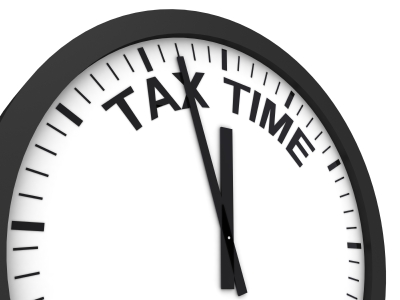April 2013 Newsletter
This month we take the opportunity to highlight some things you need to take note of before 30th June - with plenty of time to spare to take action.
In this edition...
-
Getting ready for tax time
-
Superannuation changes announced - again
-
Dewings in Kuala Lumpur
Getting ready for tax time
 Every year we like to give you a few tips and tricks before 30th June rolls around to help you minimise the tax you'll have to pay. Once the end of financial year passes, you're pretty much locked into a particular result and alternatives for further reducing tax are limited. But there is a lot you can do beforehand to better control the outcome and prepare yourself for what is coming.
Every year we like to give you a few tips and tricks before 30th June rolls around to help you minimise the tax you'll have to pay. Once the end of financial year passes, you're pretty much locked into a particular result and alternatives for further reducing tax are limited. But there is a lot you can do beforehand to better control the outcome and prepare yourself for what is coming.
In an ideal world, your end of year tax position should never be a shock! To some extent that's what we can help you avoid. Good tax planning undertaken prior to the end of the financial year can give you a reasonable estimate of how much tax (if any) you will have to pay and when it will be due. But there is a role you can play too. By keeping good records and reporting regularly, you gain insight into how your business is travelling during the course of the year. This is important because the bottom line is, if you've made money you should expect to pay some tax. For every dollar you make, you need to continually keep in mind that not all of it is yours. It might even be worth making provisions during the year for tax that you may need to pay.
It also helps to get your information to us as soon as possible after the end of the financial year. Regardless of when we do your work, there are hard and fast deadlines for when tax payments are due. It follows then that the sooner we can complete your work and let you know how much tax is due, the longer you will have to make arrangements for payment.
Where tax planning becomes invaluable though is not only in giving you an idea of your tax position earlier, but in actually allowing you to take action before 30th June to mitigate the effect of your tax bill. For example, if you've had a good year and are likely to make a profit, and you also have some cash in the bank, you may be able to make extra superannuation contributions before 30th June. These are only taxed at 15% in your superannuation fund and are tax deductible to the business, i.e. they reduce the amount of tax you will need to pay for the business by a lot more (usually) than 15%. Again, if it's looking like you will make a profit and there are expenses you are due to pay in July, it may be possible to bring those forward and get the deduction for them this year. Perhaps you can write off some bad debts? The point is that tax planning prompts you to start looking for ways that you can reduce your tax bill while there is still time to do so - before 30th June.
Some specifics for this year
There are a couple of measures that you should take particular notice of this year too.
Superannuation
It's worth keeping in mind that if you're over 50, the maximum amount that you can put away into superannuation (and still have it taxed at the concessional rate of 15%) was halved for this year to $25,000. It's possible that you may have had arrangements in place, through salary sacrificing or otherwise, that still have you putting away more than this. Before contributing anything more to super this year, you should review your contributions so far and ensure that you are going to stay below this limit (unless you have other reasons for contributing more, which in limited cases may be advisable).
Remember that this cap is a total that applies across all of your funds. If you work for more than one employer (quite common, for example, with doctors) you will need to check the contributions made with each employer and total them up to ensure you stay below the $25,000 limit.
You should also take into account contributions that were technically in respect of last financial year but did not hit your super fund account until July 2012. Even though these were made in respect of last year, they are considered to be contributions for this financial year and will form part of your current cap. It's been a common trip-up and we're seeing many cases now where taxpayers have argued that the ATO should exercise its powers of discretion to allow these. The majority have been unsuccessful, even where honest mistakes have been made.
Asset purchases
If the purchase of some new equipment is on the horizon for you, new measures were introduced for this financial year that may make getting it done before 30th June worthwhile. Small business taxpayers (i.e. those with annual turnover of less than $2 million) are now entitled to claim an outright deduction for the full cost of assets costing less than $6,500, rather than having to depreciate them gradually over a number of years. For motor vehicles, small business taxpayers are also entitled to an up-front deduction for the first $5,000 of the cost, in addition to being able to depreciate the balance at normal rates. In terms of tax advantage, bringing forward the purchase of assets is really more about timing, but if you are able to do so you will receive a more immediate tax benefit.
There are of course many other measures you can look at to minimise your tax bill. At the very least, good tax planning will allow you to estimate what your liability will be, so that you can start preparing (if a payment is due). But you might just find that it will save you some money too.
Superannuation changes announced - again
 The Federal Treasurer Wayne Swan this month issued a media release regarding changes to the tax treatment of superannuation for those earning income within their funds of over $100,000 per annum.
The Federal Treasurer Wayne Swan this month issued a media release regarding changes to the tax treatment of superannuation for those earning income within their funds of over $100,000 per annum.
Currently earnings in a superannuation fund are tax free on assets that are supporting pensions (i.e. when the fund starts paying a pension or annuity - in most cases where a member retires or approaches retirement). The Treasurer has flagged the Government's intention to start taxing any earnings over $100,000 per annum for each such member in the fund, at the concessional superannuation fund rate of 15% from 1st July 2014.
It is estimated that, based on an assumed rate of return of 5%, this would only apply to those with $2 million or more in superannuation, so it has limited application. However it is indicative of the Government's intention to continue tinkering with superannuation in order to source future revenue. Some transitional arrangements will apply for capital gains included in the $100,000 threshold, which may reduce the potential impact for those who find themselves affected by these changes. It may be, however, that action should be taken by those affected prior to the application date in order to minimise the tax payable.
Note that this doesn't affect the treatment of withdrawals from super. If you're over 60 and your fund earns more than $100,000 per year, withdrawals will continue to be tax free. This change affects tax paid in the fund on the earnings of the investments of the fund.
In addition, the current concessional contributions cap of $25,000 (under which your superannuation contributions are only taxed at 15%) will be increased on 1st July 2013 to $35,000 for over 60s. The same increase will apply for over 50s from 1st July 2014 and for all taxpayers by 1st July 2018, although with the current instability in Canberra generally and superannuation law specifically, this looks much too far away to be relied upon with any degree of certainty.
You can read further details of the release here, and of course if you have any questions please contact us.
Dewings in Kuala Lumpur
 Last month two of our directors, Kathy Allen and John Manning, were in Kuala Lumpur to present at the ACCMA & ACMA (SA Inc.) Annual Scientific Meeting Oncology Update. The conference, held over the Easter weekend, focussed on developments in the oncology field (i.e. cancer). So what does that have to do with us?
Last month two of our directors, Kathy Allen and John Manning, were in Kuala Lumpur to present at the ACCMA & ACMA (SA Inc.) Annual Scientific Meeting Oncology Update. The conference, held over the Easter weekend, focussed on developments in the oncology field (i.e. cancer). So what does that have to do with us?
Like anyone, when we hear that a person has been diagnosed with a potentially life threatening condition, our first thoughts go out to the person and their family - the emotional consequences. But we wouldn't be doing our job if our next thought wasn't something along the lines of "I hope they have their affairs in order". Estates can be very messy where there are not clear instructions, and having a definitive plan in place can maximise the outcomes for family members while also helping to minimise conflict. This is especially true for those who operate their own business.
For this reason we were invited to speak on the topic of Estate Planning. We presented a few case studies that demonstrated some of the complexities than can arise, as well as some of the more creative measures we have used to help ensure a smooth transition with maximum results for beneficiaries.
Estate Planning is one of those 'rocks' of any successful business or wealth portfolio. It's part of building a strong foundation that allows you to operate with confidence, knowing that if the worst should happen, your family is taken care of.
Dewings are proud sponsors of the Australian Chinese Medical Association here in South Australia, and we'd like to thank them for the opportunity to present on this important topic. Not to mention the added bonus of sampling some outstanding Malaysian cuisine and shopping!
 Download PDF Newsletter
Download PDF Newsletter